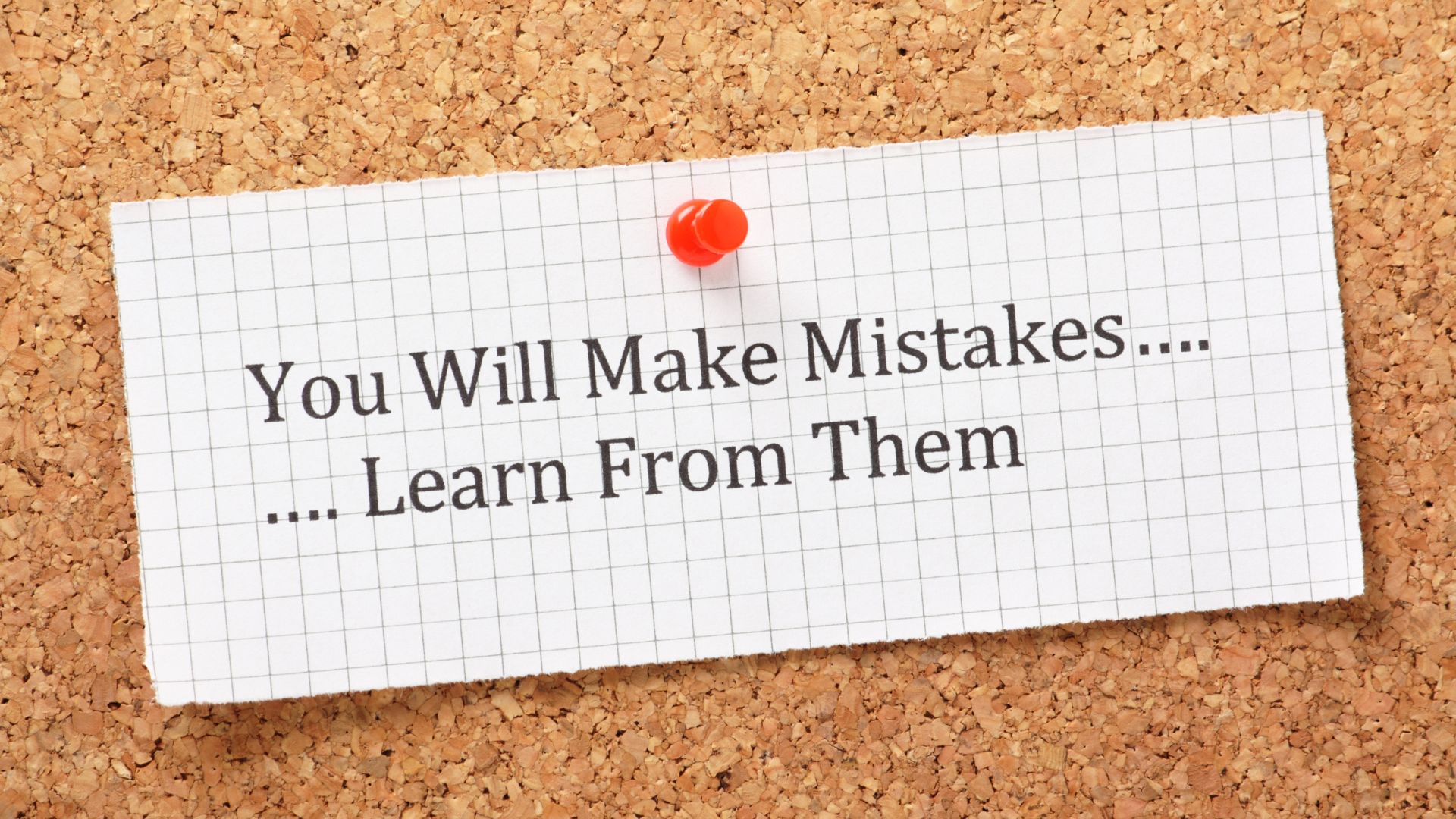A job interview is important, as it can be a stepping stone to a better future—if you do well, that is. Given what’s at stake, you need to give your best to make a great first impression, which means avoiding any interview mistakes you might make.
As the interview approaches, you’ll experience mixed emotions such as excitement and anxiety about the possibility of finding work, as well as nervousness and even nausea brought about by the fear that you might mess up the interview.
That’s why we created this extensive guide to help you avoid the most common interview mistakes and navigate the whole process successfully.
Key Takeaways
- Prepare for the interview by listing the traits that show you in the best possible light, but make sure to not to sound braggy or arrogant.
- Bring all the documents that back up what’s on your resume.
- Dress and behave professionally to make a good first impression.
- Be concentrated, enthusiastic and self-assured while responding to interview questions.
16 Interview Mistakes to Avoid
Let’s take a deep dive into this list of common interview mistakes to avoid and learn how to correct them. By becoming aware of these interview mistakes, you’ll be able to avoid them in your own interview.
#1. Arriving Late or Too Early
Make sure you show up on time, or better yet, a few minutes early. Being late is not only a sign of disrespect but also of your inability to plan ahead and take charge, which is an impression you definitely don’t want to make
So, if you’re running late for an interview, it’s best to call ahead and tell the interviewer how long you’ll be late, or at least apologize when you get there to show that you know you did something wrong.
However, you might not want to show up too early either, as you may disrupt their organization and cause an unpleasant situation.
#2. Not Being Prepared
If you don’t know much about the company and the job you’re applying for, you’re likely to seem uninterested, and that can only hurt your chances of getting the job.
On the other hand, if you are well-prepared and know the details about the job and the company, you can present yourself as a serious candidate who is passionate about the opportunity. This will help you appear more confident and competent during the interview.
#3. Not Researching the Company
Failing to research the company before the interview is a serious mistake. By not taking the time to learn about the company’s values, mission, and goals, you’re indicating that you’re not truly invested in the job or the company.
This makes it hard for the hiring manager to believe that you will be committed to the job and the company over the long term.
Therefore, before the interview, learn about their products or services, their culture, and their achievements. This will show the interviewer that you’re interested in the company and a good fit for the position.
#4. Having Too Much or Too Little Energy
You may appear aggressive if you have too much energy and a volatile temper. This attitude can be tiring for others, negatively affecting the workplace atmosphere. Keep a pleasant attitude and try not to answer too quickly or too eagerly.
On the other hand, if you have too little energy, the employer might think you will not be able to handle some stressful situations, stand up for yourself, and defend your point of view.
Try to appear enthusiastic and confident, and do not hesitate to highlight your skills that are relevant for the job.
#5. Talking Too Much or Too Little
If you talk too much and ask too many questions, you might end up exhausting the interviewers and making them lose interest early on.
Instead of speaking quickly and in a high-pitched tone, opt for a calm and softer one.
On the other hand, if you only respond to questions with a simple “yes” or “no” or with unclear and unfinished thoughts, they will probably conclude that you lack communication skills, which are essential for many jobs.
#6. Not asking questions
Don’t treat a job interview as an interrogation. In its essence, a job interview is a conversation, which means that it is a two-way street.
It is natural and expected to have questions for a potential employer. But keep in mind that those questions need to be related to work and the company.
Unrelated questions can help with jitters and nervousness, but if you overdo them, you risk being seen as too casual and easily distracted.
By asking job-related questions, you will show that you have prepared for the interview and that you are 100% committed to it.
#7. Dressing Inappropriately
How you look will greatly influence how you’re perceived.
Therefore, if you are dressed improperly, you will leave a bad impression and hurt your chances of getting hired. Employers might question your ability to take the job seriously if you don’t care about your appearance, as dress codes are often quite important in many business settings.
However, if you present yourself properly, you will send a clear signal that you’re a serious candidate who cares about making a good first impression.
#8. Being Too Personal
Be mindful of how much personal information you provide. The potential employer isn’t interested in your private life, as long those matters do not affect your performance
You might mention a small detail to build rapport with the interviewers, but lengthy stories about your childhood and personal matters are more likely to contribute to the employer’s lack of interest than anything else.
Stand out by highlighting your skills that are relevant to the position you are applying for, and pay close attention to your interviewer instead of rambling about yourself.
#9. Criticizing Previous Employer
Don’t talk negatively about your previous employer. If you do this, a potential employer might wonder if you will badmouth them in the future as well.
Instead, present the negative experiences you had with your prior company as something you would approach differently in the future, such as handling conflicts or certain issues differently.
#10. Using Phone During the Interview
Don’t use a phone during the interview itself or even while waiting for it to begin, as this could be considered rude.
By doing this, you’re sending a signal of disinterest in your future workplace. Put down the phone, look around, and show curiosity instead.
Here’s a tip: while waiting for the interview to start, if there are brochures on the table, make sure to read them because doing so shows interest in the company and its activities.
#11. Poor Body Language
You should be well aware that you are speaking both with your words and your movements, and we want them to complement each other. Poor body language during an interview can send the wrong message and negatively impact your chances of getting the job.
Therefore, it’s essential to practice good body language so that your nonverbal cues back up your message and represent you as a confident, professional, and engaged candidate.
Pay attention to the following details:
- Shake hands with everyone when you enter the room
- Look the interviewer straight in the eyes
- Gesture with your hands only when necessary to enhance the effect of your words
- Smile but make sure to not overdo it or smile at the wrong time
- Think about your posture while sitting
#12. Not Paying Attention
A moment is enough for you to drift off and start thinking about something else during the interview. This is natural, but you need to be mindful of it and bring yourself back into the moment, as you won’t hear what the interviewer is asking you and end up looking quite foolish.
#13. Lying on Your Resume
It’s okay to not have too much experience or a master’s degree, but it’s absolutely not okay to lie about it.
Sooner or later, you will get busted, and it’s likely to happen at the job interview itself. Whenever it does happen, the doors will close for good.
If you want to make a good first impression, never put things on your resume that you don’t do or don’t know. Instead, be honest and work hard to learn and improve every day.
#14. Bringing Up Salary and Benefits First
It is not a good idea to fixate on the salary narrative during the interview or to bring it up very early on. By doing this, you are showing the employer that salary is all you are interested in and that you will demand raises too frequently.
Instead, concentrate on presenting your skills and knowledge in the best way possible, because those will earn your salary. Keep your cool, because the salary discussion will come, and if it doesn’t, bring up the subject later on and have a range in mind.
#15. Being Too Personal With Interviewer
Since the interview is a formal event, you shouldn’t ask the interviewer about his family, other candidates, or anything about his personal life.
You need to maintain a professional tone throughout the conversation, even if you touch on subjects that have nothing to do with the interview. Use this as a way to break the ice and establish a friendly rapport without crossing any personal boundaries.
#16. Not Asking About the Next Step
Don’t forget to ask the interviewers what the next step in the hiring process is if they don’t tell you themselves
When the interview is over, you should ask what comes next if you pass to the next round, but don’t come on too strong. It’s best to ask this if you’re feeling good about your chances and if you’ve established a decent rapport with the interviewers.
This will help you get ready for what’s next and show them that you’re still interested.
What to Do After a Bad Interview
One thing is certain: you cannot turn back time and correct your interview mistakes. So what do you have left?
After getting the bad news, you should try to get in touch with the interviewer to get some kind of feedback. Ask the interviewer, “What did I do wrong?” Did I come unprepared? Did I talk too much about myself?
Be prepared for a rejection, but if they are considerate enough to give you feedback, there is no better opportunity to open your eyes and learn something from your interview mistakes for your next interview.
You should also think about what you did wrong. Why did you answer the question the way you did, and so on? Be honest with yourself, because that is the best indicator of your self-awareness and desire to improve.
Final Thoughts
Learning how to correct interview mistakes is key to successfully navigating your interview. By examining the most common interview mistakes and avoiding them, you’ll be well-prepared to showcase your strengths and confidently answer any questions.
Therefore, believe in yourself, make sure you’re well prepared, and you’ll be sure to ace your interview. Best of luck!











